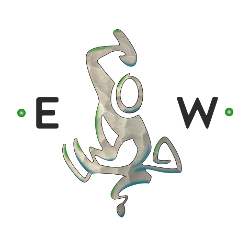I have been attempting to fiddle with and manipulate sound since I was 10 years old and asked my parents for a Craig (remember them?...no worries) voice recorder for my birthday. Over the years my gear of course has infinitely evolved and improved, but the intrigue that bound me to that recorder so that I could capture the sounds around me has been steadily modulated only by knowledge and experience. I've learned how to do things better, how to improve technique, and how to differentiate creativity from wild sound goose chases (although, sometimes those produce really cool results in and of themselves). Though the "meaning" (and that can be a tricky word) of sound seems to never fully rest in one static semblance.
The meaning of sound or sounds that we encounter throughout our lives changes. It is fundamentally definite in terms of physics, save the wave-particle argument, but is exceedingly more complex in terms of cognitive understanding. Furthermore, sounds mean different things to different people. Not only because we are different physical creatures with ever-so-slightly different physical brains, but also because we have different past experiences, different mental representations, different points-of-attention, different levels of hearing ability, different beliefs, and different priorities. As well, even these things have the common trait of changing at the individual level as we go through life. For every small moment of time we experience, our perceptual tendencies have the potential to change -- and they often do. Add all of that to the natural or artificial modulations a sound receives via the expected or unexpected differences in our surrounding environment, and you have quite a semiotic mess to untangle.
It could be said then that sound designers, field recordists, and audio professional alike have the difficult task of conceiving a sound for a design or purpose, interpreting it in order to capture/create it, reinterpreting it after capture/creation, processing the sound actively while maintaining that mental representation of their interpretation (this usually being somewhat of an iterative process), and then conveying to others that interpretation so that they may interpret the sound for themselves; hopefully in a similar way. We work with social, mental, physical, and digital conventions that allow us to operate in a somewhat dependable framework, but they are in no way limiting and there is often no definite "right" way to represent a particular sound or use sound as a representative element...
...it is a matter of creating harmony out of all of this, either intentionally or unintentionally. Scoffing, is at this point, axiomatically prohibited :)
The meaning that we are hoping to "capture" when recording audio or designing a shoot is a product of our conceptualization of the entity on which we are focused at that moment. It is simultaneously a delicate and rigorous process. Weaving fine fibers of pristine meaningful sound, all-the-while hacking away at unwanted and convoluting incongruity. Weaving and hacking, weaving and hacking... It's well understood now in the cognitive science community that no one really ever multi-tasks; it is a matter of switching attention and skill between two or more tasks and how well one is able to do so. A skill in and of itself, audio professionals are constantly honing their ability to instantly switch production modalities with a needle in one hand and an ax in the other.
Being one of those enigmatic blends of art and science, it is then arguable that sound design and audio production are disciplines where truly endless potential exists. It's not about finding the "right sound" by functional definition, but simply the right sound to fit the intended and/or interpreted evocative purpose at any given moment in time. Again, truly endless. One of the more particularly interesting dilemmas that comes up in this work for me is when you have a unique source available to you and multiple ways of capturing it, but perhaps only enough time to try one or one chance is all you will get (i.e. the epic kick drum amp sample experiment; ask about it sometime). In those situations, you are at your truest form. It is like an audio kōan, after which you go back to your console, audition your capture, and either exhale in blissful enlightenment or walk away befuddled muttering to yourself how you should have known better. In either case, you learn something new and hopefully improve upon not only your aptitude, but your affective perception as well. These moments of all-encompassing semiotic audio investigation are not so common, but over enough time they become pivotal milestones in our sonic journeys. Reflecting on all of this reminds me of a quote from Jiro Ono, considered by many to be incontestably the greatest sushi chef in the world:
"In order to make delicious food, you must eat delicious food. The quality of ingredients is important, but one must develop a palate capable of discerning good and bad. Without good taste, you can’t make good food."
